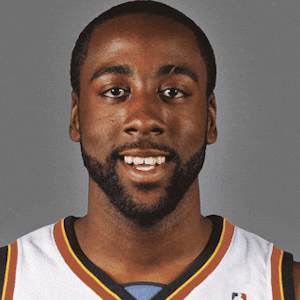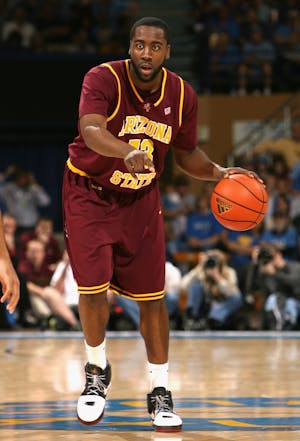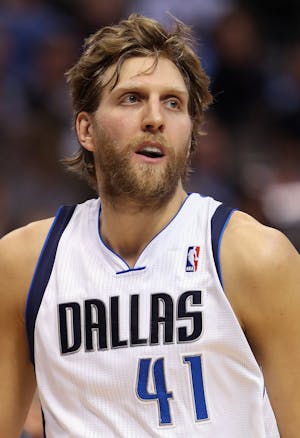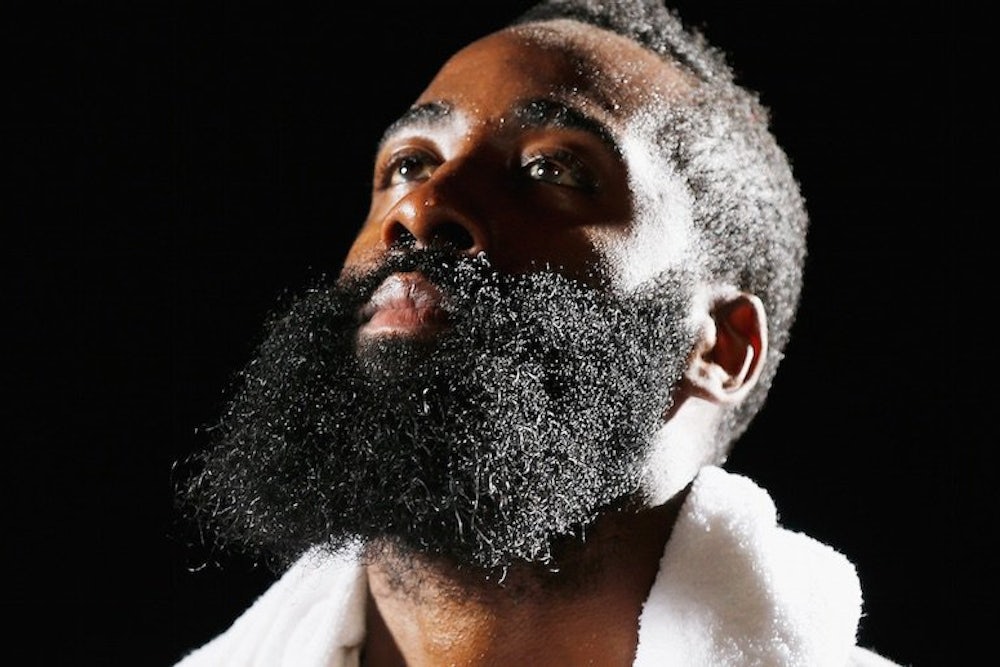No one thought James Harden would be this good. The Houston Rockets guard showed plenty of potential as a college player at Arizona State—enough to make him the third overall pick in the 2009 NBA draft—but no one saw him as a future MVP candidate. The scouts had already made their assessment: Harden wasn’t an elite athlete. He couldn’t shoot off the dribble. “Harden seems like he is going to be more of a system guy,” a Bleacher Report correspondent wrote in 2009.
Even after three full NBA seasons—even after winning the NBA’s Sixth Man of the Year Award in 2012—Harden still had plenty of doubters. He ended up with the Rockets only because the Warriors and Wizards passed on him. And some NBA insiders thought Rockets GM Daryl Morey was foolish for offering Harden an $80 million “max contract.” “Morey must've found the right set of numbers that told him Harden was a star," ESPN’s Israel Gutierrez wrote, “because using the eye test, it doesn't seem he's capable of handling that type of responsibility.” In fairness to Gutierrez, Harden himself wasn’t entirely sure if he was good enough to be a true superstar.

The question, then, is how did this happen? How did Harden go from being a very good to an astonishingly good basketball player? How did he go from scoring 9.9 points per game during his rookie season to 27.4 points per game this year—a number that placed him second in the league in scoring (less than a point behind Russell Westbrook and over two points ahead of LeBron James)? It wouldn’t be the first time a player has made an unexpected leap at the professional level—Steve Nash and Paul George come to mind—but Harden seems to have changed in ways he was least likely to change. Former NBA All-Star and coach Doug Collins once noted that Harden “had no motor in college. None.” And motor isn’t the kind of thing you can teach. You either have that extra something, that inner drive to win, or you don't. A lot of extraordinarily talented players never reach the upper echelons of the NBA because they lack a motor. Something changed inside of James Harden, something that can’t be explained only by more hours in the gym.
Or maybe something changed on the outside? After all, when Harden played for Arizona State, a motor wasn’t the only thing he was missing.
James Harden had facial hair at Arizona State, even a respectable enough beard by his second season. But—and this can’t be emphasized enough—it was simply a beard, not “the beard.” At Arizona State, Harden was an average-looking guy with sleepy eyes and a chin that, when he smiled, seemed a little too narrow for his otherwise broad features. It wasn't until Harden’s second season in the NBA that we began to see hints of the masterpiece that sits beneath his face today. And yet, like Harden’s game at the time, his beard remained a work in progress. It already had that mesmerizing deep-black glow, yes, but the kid from Arizona State was still detectable somewhere in there.

Only in Harden’s third season did the beard leave the rest of the face behind and venture off on its own. In the process Harden was transformed from an average-looking guy to a distinctly handsome guy. The too-narrow chin vanished beneath a beard that not only perfectly complemented his broad face, but also made his sleepy eyes seem sober, even wise. Whereas before he looked merely tired, Harden now appeared weary from battle, burdened by some great truth. Still, it was possible to detect small patches that were less robust than the rest, clearings in the dense forest. The beard’s one significant flaw—a scraggly patch beneath the lower lip where a bit of skin has always been visible—remained. Harden had the beard of a preacher in the wilderness but not yet the beard of a true prophet.
Then, it happened: During Harden's fourth season, his breakout year with the Houston Rockets (his scoring rose from 16.8 to 25.9 points per game), the beard had a breakout season of its own. The skin below the lower lip all but disappeared. The less-robust patches were now lush. The beard now seemed to contain hidden powers—as if, were you to reach into it, your hand might come back out with some small treasure.
Yes, it could be a coincidence that Harden's game took an astonishing leap even as he grew an astonishing beard. It’s also possible that whatever hormonal or physiological changes that make it possible to grow such a magnificent beard made it possible to crossover an NBA defender until he falls down and then hit a step-back three. But the most likely, or at least obvious, explanation is that the beard was not the effect, rather the cause.
If that sounds far-fetched, consider the research that suggest that merely assuming a confident pose for a few minutes can make a big difference in how you feel about yourself, can even raise testosterone levels and cause cortisol levels to drop. If standing with your hands on your hips can change a person, imagine what a beard like Harden’s could do for a person. Imagine the difference between looking in the mirror and seeing Harden’s Arizona State face and his current face. Not only does it seem likely that the beard turned Harden into a far more confident player, it’s almost impossible to imagine that it didn’t.
None of this is to discount some of the other impressive beards that have made appearances on the faces of NBA players over the years. Quincy Acy, Baron Davis, and Chris Andersen have much to be proud of with respect to their facial hair. But none of their beards comes close to Harden's beard. And, perhaps more importantly, none of them had the same potential for a beard-inspired transformation. Davis looks pretty cool no matter what he does. The Birdman's appearance is so dizzying you hardly notice the beard. Acy's beard perhaps comes closest to Harden's, and yet, he’s made the classic error of keeping it too thin up top relative to the heft beneath the chin.

The beard theory also explains why Dirk Nowitzki attempt to beard his way to success during the 2012-2013 season was destined for failure. Dirk recognized a beard’s powers to take a player to the next level, and his face could certainly benefit from the right facial hair. But Dirk simply couldn’t grow the truly great beard he needed. If he could, the Mavericks would probably be up 2-0 in their first round series with the Rockets rather than down 2-0. (Game 3 takes place in Dallas on Friday night.) Indeed, if Dirk could grow a Mosaic, Harden-esque beard, he’d probably be the MVP every year.
Moses is especially apropos here. When God first calls out to him from the Burning Bush, he's baffled: “Who am I that I should go to Pharaoh and bring the Israelites out of Egypt?” he asks. But Moses grows into the role, Eurosteps his way right up to Pharaoh and demands freedom for his people. How did Moses gain such confidence, and go from a sixth man to the franchise player of the Jewish people? The Bible, to my knowledge, offers no clear explanation. But, having witnessed the evolution of James Harden’s face and game, it’s easy enough to imagine the scene: Moses, standing on the banks of the Nile, still uncertain he has what it takes, until he glances down at the water and sees a great leader staring back at him.
